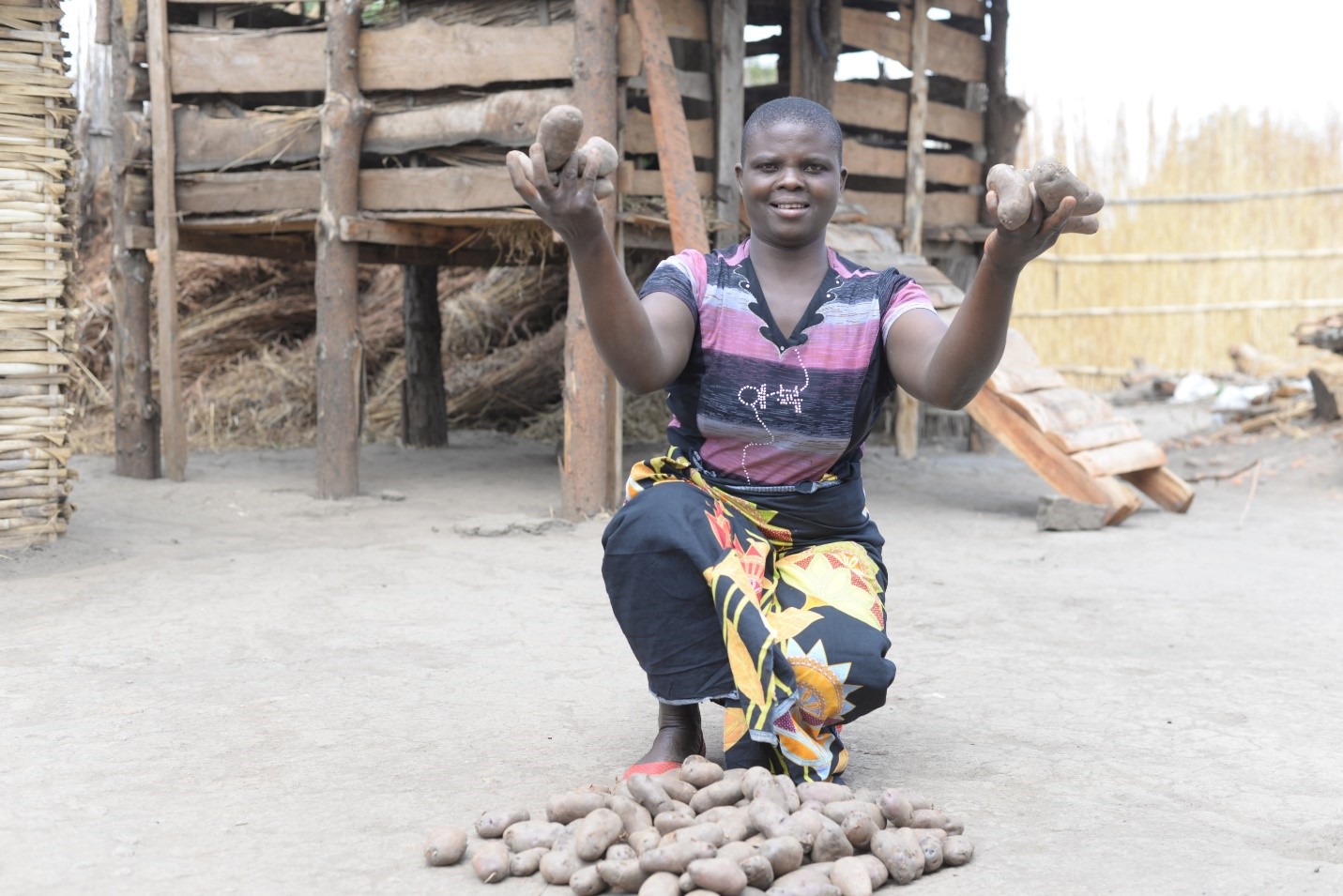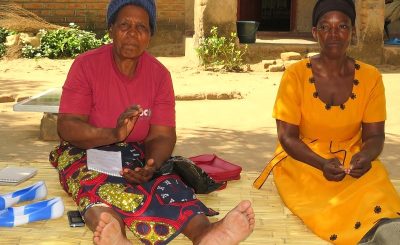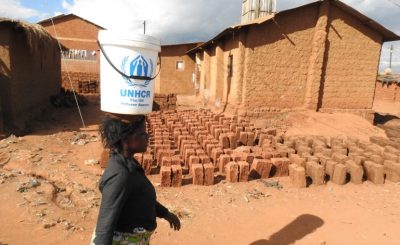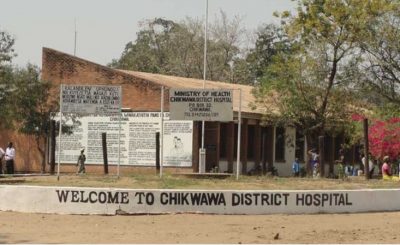Earning a living through Irish farming has been order of the day for the past decade, for one Chimwemwe Chidzaye from Msonthi village in the area of traditional Authority Vuso Jere in Ntchisi District.
He rekindles memories of 2001 when he first joined other growers of Irish potato which according to Chidzaye, an emerging Irish potato farmer, expresses contentment with previous farming seasons as more productive translating to a better life, unlike the present.
Irish potato placed as fourth most important crop by volume of production of the major food crops after Maize, Sweet Potato and Cassava continues to face both pre and postproduction challenges to realise its full potential.
In his maiden days as a potato farmer, envisioned to become a potato processor, if it were not hit with declining levels of income, still the vision hangs in balance 21 years later. Establishing his own processing factory appears to be a toll order.
In pursuit for his longtime dream, in 2013, Chidzaye, a father of three, decided to join Mwaiwathu farmers Club to match his aspirations of establishing an agro-processing factory to add value to their crops thereby increasing their economic realisation.
Mwaiwathu Potato growers club pioneered with dismal 10 members stirred one agenda of poverty eradication and now the club has a whopping 60 membership But Chidzaye, who is also the famers club general secretary sums up the 9-year journey down the line.
He says: “I would say the club is yet to realize its potential due to a number of pressing challenges. If we relook where we are coming from, you will observe that the club has stumbled upon pressing challenges including low productivity, poor storage facilities and limited access to clean seed.”
He further narrates how his four hectors potato farmland productions made loses due to presence of thought-provoking termites and rainwater leakages at his potato storage barn that according to him is below the standards.
“Because as a cooperative we do not have our own storage facilities, every member is forced to use personal makeshift storages which also becomes a challenge, to some extent I was even forced to sell products to vendors who buys at a lower cost,” Chidzaye explains.
The storage facility situation for Mwaiwathu cooperative, the only grass thatched shack crudely constructed warehousing with Leeds and bamboo has led to famers opting for local potato variety to suit their means of storage unlike hybrid varieties that demands well-constructed potato storage barns or warehouses.
The situation has led to farmers incurring more post-harvest losses.
Chidzaye however believes that if it were not for this kind of farm business, life would have been miserable for him and family in the central region-northern district where farming is the major source of employment.
He claims that annually, potato-farming proceeds would rake in over 1 million Malawi kwacha after selling his farm yields and since joining potato farming business, together with his family, they amassed with affordable accommodation and other business ventures.
“I have a decent house, out of potato farming, I have also established other businesses, and I now have a plot bought at the Boma {Ntchisi} where I am planning to erect good structures there. All these are proceeds of Irish potato farming,” he says.
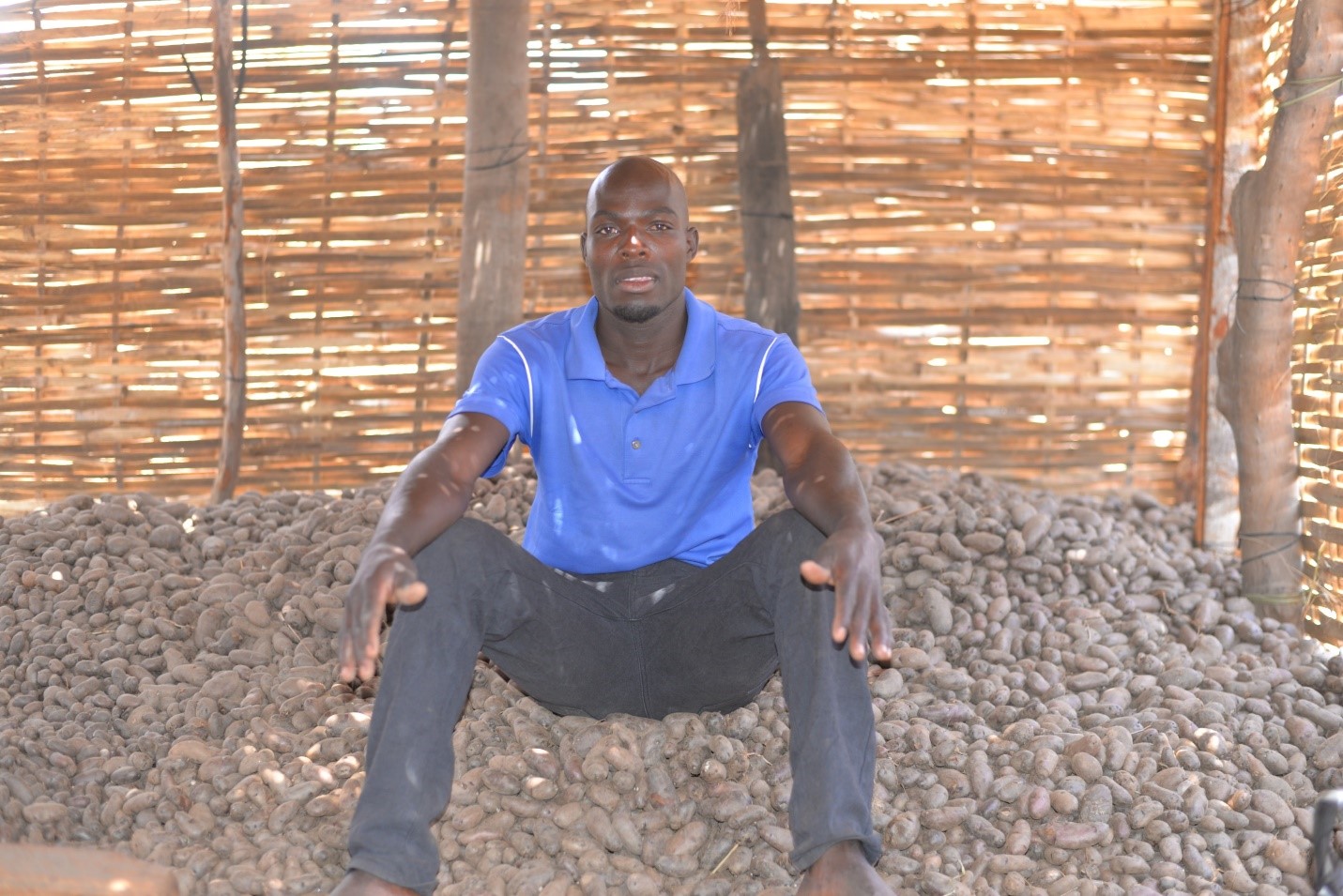
Linda Lungu who heads the cooperative, echoes Chidzaye on the challenges outlined, adding that her grouping is failing to register significant growth due to limited capital.She further says apart from improving their membership livelihoods, prospects of adding value chains through potato production at Mwaiwathu, still hangs in suspense, attributing it to low levels of financial muscle to start producing potato-processed products.
In addition, that lack of a proper warehouse as a club, it is failing to meet projections such that products are sold quickly and cheaper before they are rendered damaged.
“Some things have changed indeed, our families have improved; we are able to send children to school and a good number of us have good houses, all these from Irish potato farming but, the dream to have our own food processing machines and a warehouse remains our dreamed objective,” she says.
Just like at Mwaiwathu cooperative, in Mchinji District under Traditional Authority Mkanda Masakamika, Youth Cluster is another grouping of young people producing Irish Potato in large volumes but access to markets and improved seeds is another daunting task in the quest.
According to Feston Mathews, a member of Masakamika cooperative, off takers have now reaping more than what farmers are realising from the potato farming productions.
Mathews laments: “Our level of productivity does not match our efforts because access to improved seeds is a challenging task, the same thing is when it comes to access to good markets and this left us with no option in fear of damages, and we sell our products to the only off takers available who are vendors.”
He appeals on to stakeholders to come to their rescue and support with up to standard seeds, good markets and irrigation equipment so that the youthful grouping should not be laboured with irrigation using watering cans.
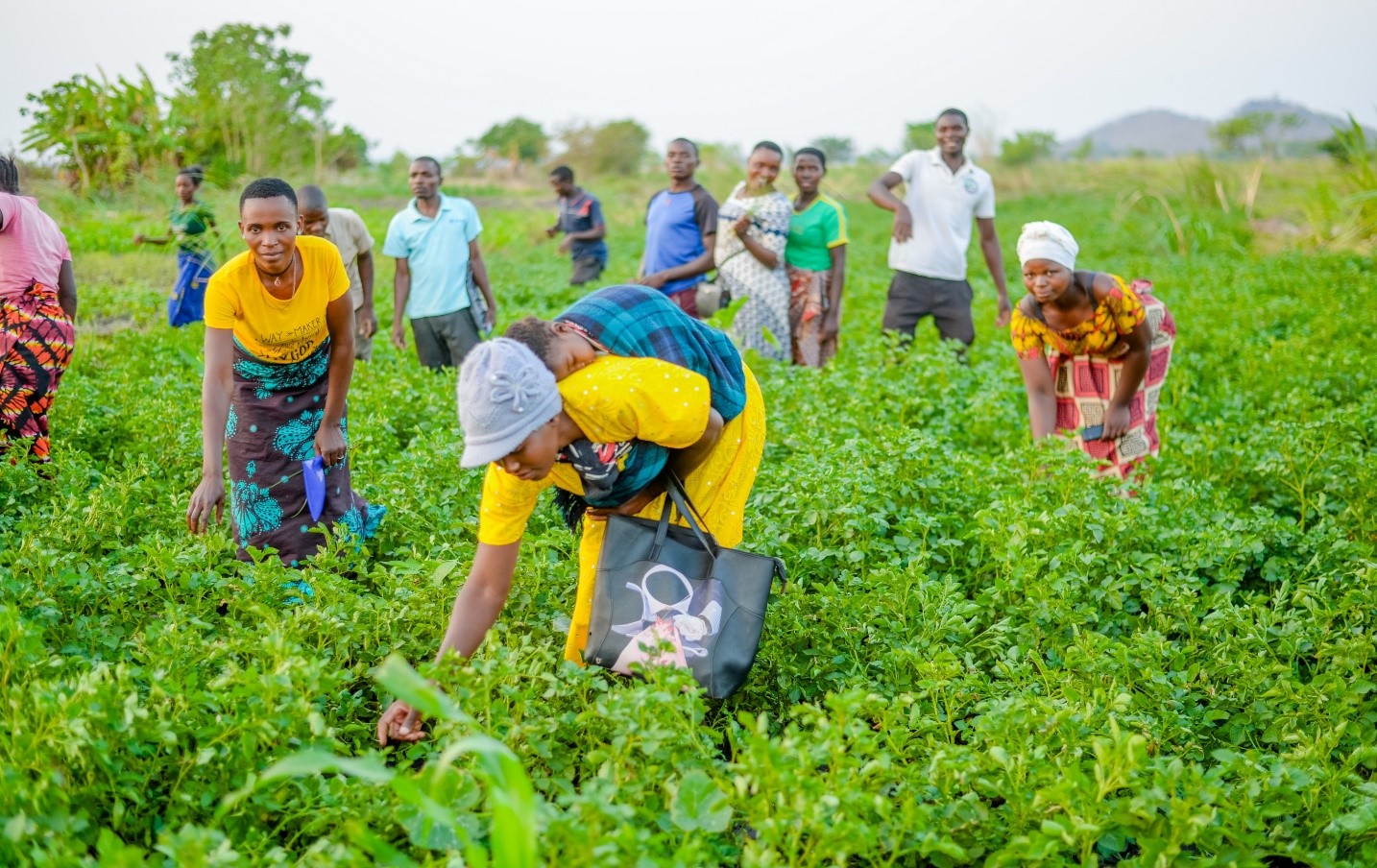
Members of Masakamira Youth cluster in their Irish Potato field
Government of Malawi through the ministry of trade is implementing a 6-year project dubbed “Transforming Agriculture Through Diversification and Entrepreneurship – TRADE” targeting 127,000 rural based and small-scaled farmer households’ with commodity interventions on Agriculture Commercialisation.
According to Knowledge Management and Communications Specialist for Trade, Oscar Ulili, TRADE is committed to supporting result-oriented cooporatives to transform their lives through full agro-processing support by among others creating an enabling environment for local and small-scale farmers through matching grants capitalization.
Ulili says: “As a project we are already on the ground, we want to have what we call a producer private –public partnership that will enhance the linkage between the private sector and farmers on challenges such as marketing challenges.”


